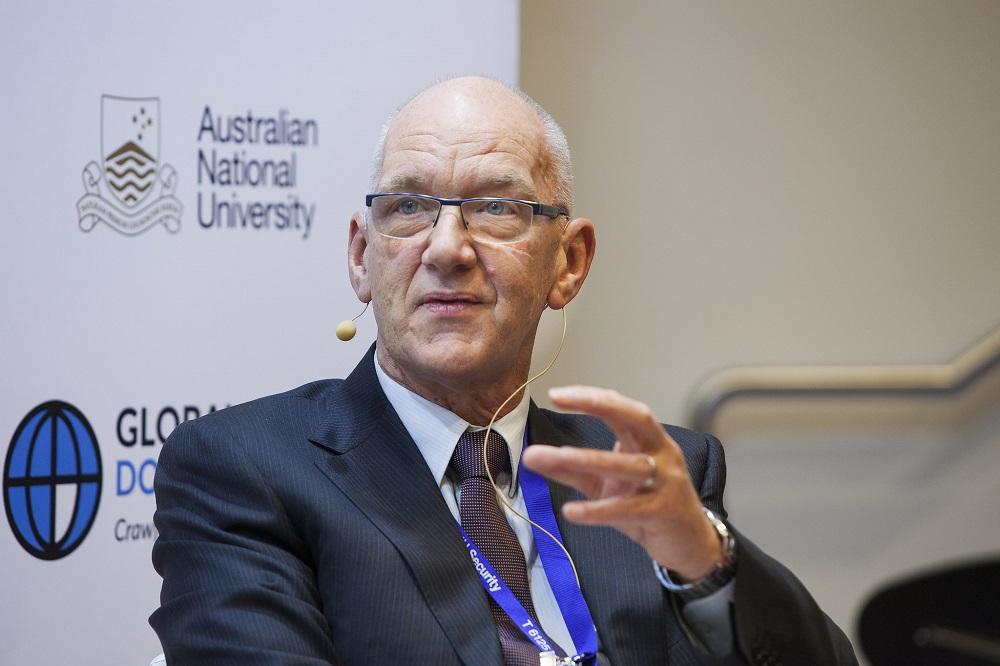
Perhaps now, more than ever, is the time when Australia needs outstanding foreign policy thinkers. It has lost one of its best with the death of Allan Gyngell after a short illness.
When he relinquished the national presidency of the Australian Institute of International Affairs (AIIA) a few months ago, he saw it as his last job. But had he lived on, he had too much energy and too much to say to have stopped there. His voice would have continued to be heard and heeded for its sagacity.
In Australia’s foreign policy world, there are the diplomats, the analysts, the writers and the commentators. Allan was unusual in that he was all of these. And in all these roles he thought, ferociously and deeply.
He started his working life as a diplomat in the Foreign Affairs intake of 1969 which produced a record number of agency heads across Canberra, to say nothing of senior ambassadorial appointments.
Allan had Character-in the old-fashioned sense.
He showed guts at an early stage. In 1972, he and a few others wrote a letter to the editor of the Sydney Morning Herald criticising racist comments by former Labor leader Arthur Calwell.
As one of his contemporaries remarked, ‘particularly in that era, not many of us would have taken that risk. He could have lost his job!’
Allan was posted as a diplomat to Rangoon, Singapore and Washington. In all these capitals he worked with distinction. But he developed his reputation as a policy thinker and doer in Australia itself.
Allan worked in the policy engine-room of the Department of Prime Minister and Cabinet in the Hawke years, after which he was foreign policy adviser to Paul Keating. He then left government and later became founding director of the Lowy Institute.
Under Prime Minister Kevin Rudd, Allan returned to government as head of the then Office of National Assessments.
In recent years he was an honorary professor at the ANU, and AIIA president.
And in between all this, he wrote the seminal work on Australian foreign policy: ‘Fear of
Allan attached importance to a clear delineation between intelligence analysis and policy formulation.
And he believed that if you got the policy substance right, the rest should follow.
The core of Allan’s thinking was about what was best for Australian interests—economic, security and perhaps less obviously, the respect of others. He always put Australia first. But he never argued along bludgeoning, nationalist lines. Rather he saw effective international policies and engagement as crucial to this country’s future.
Allan saw Australia’s external outlook in terms of our place in the region as broadly defined, of our security interests to which the relationship with the United States was central, and as an active participant in global and regional multilateral machinery.
Of these broad policy areas, Allan’s work in government will be best remembered for his focus on the region.
As foreign policy adviser, Allan was a key figure in Keating’s emphasis on Asia, particularly on Indonesia. He led the secret negotiations which produced the 1995 Australia-Indonesia security agreement. He was also heavily involved In Keating’s push for Asia-Pacific Economic Cooperation (APEC) meetings to be held at leaders’ level—with the first such summit hosted by President Clinton in Seattle in 1993.
But perhaps Allan’s most important legacy will lie with his work on developing a more thoughtful and broader foreign policy culture in Australia.
He understood that Australians needed to be more engaged on foreign policy issues affecting them.
Nobody serious about understanding Australian foreign policy can avoid reading ‘Fear of Abandonment’.
His work as founding director of the Lowy Institute took Australia into the world of major think tanks. Moreover, Allan’s introduction of a Lowy opinion poll led to a much clearer understanding of Australian public attitudes to external issues.
And under Allan as national president, the AIIA for the first time had a fully functioning branch in every Australian state and territory. He will also be remembered for over 100 podcasts from the AIIA with ANU academic Darren Lim.
Beyond all this there were his personal qualities as a friend and mentor. He had an innate discipline. He was never a show pony, always a gentleman.
Our thoughts are with his wife, Catherine, and his family.